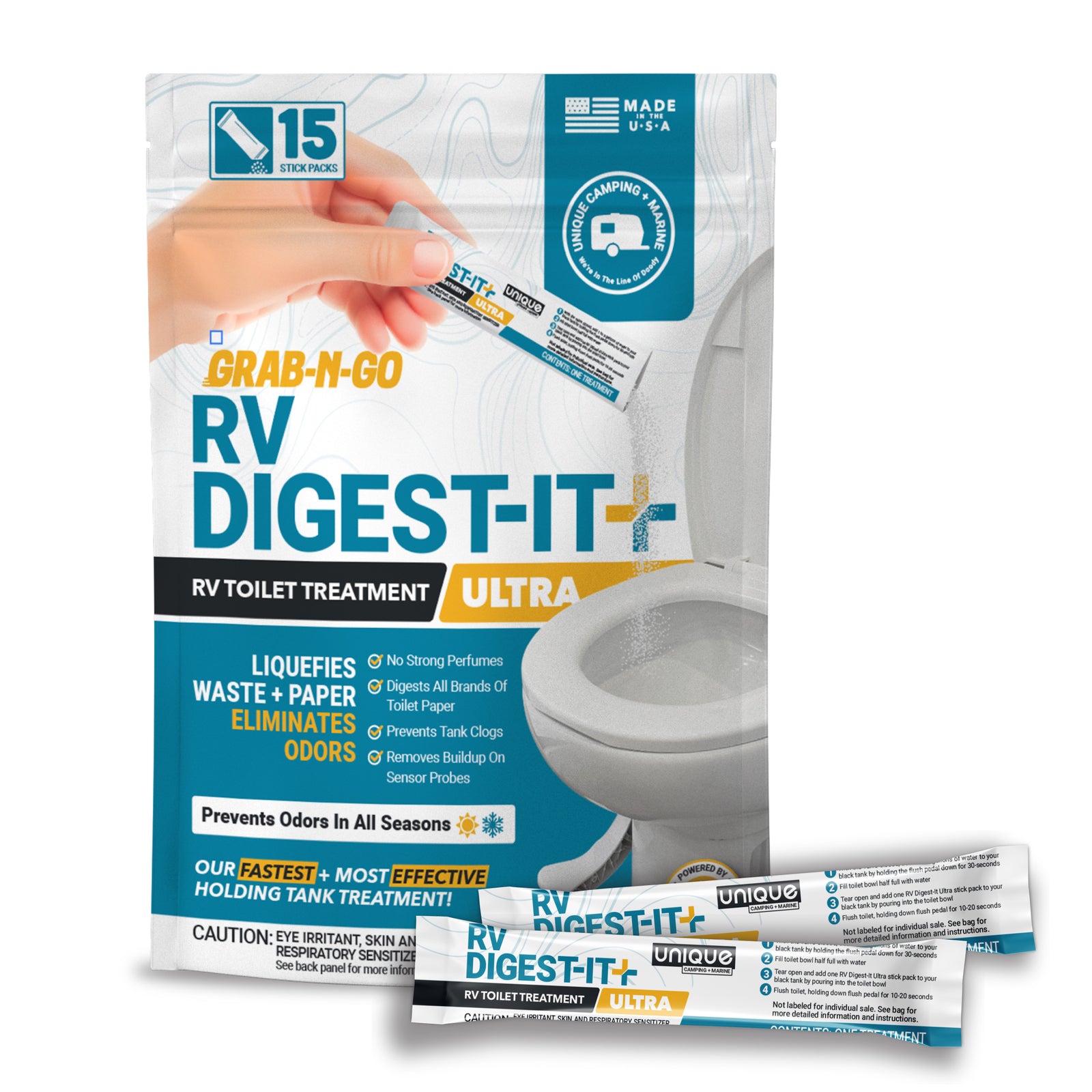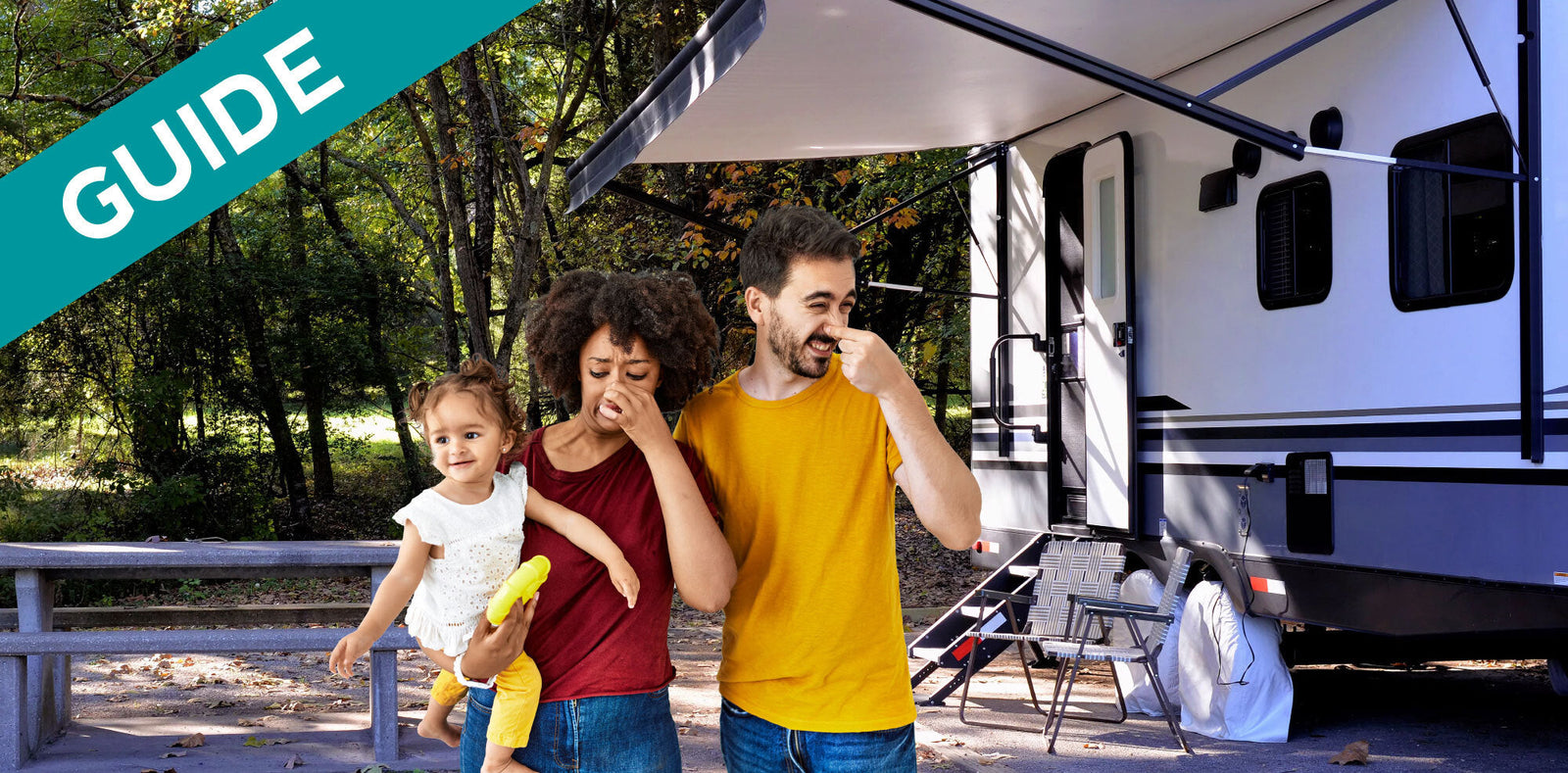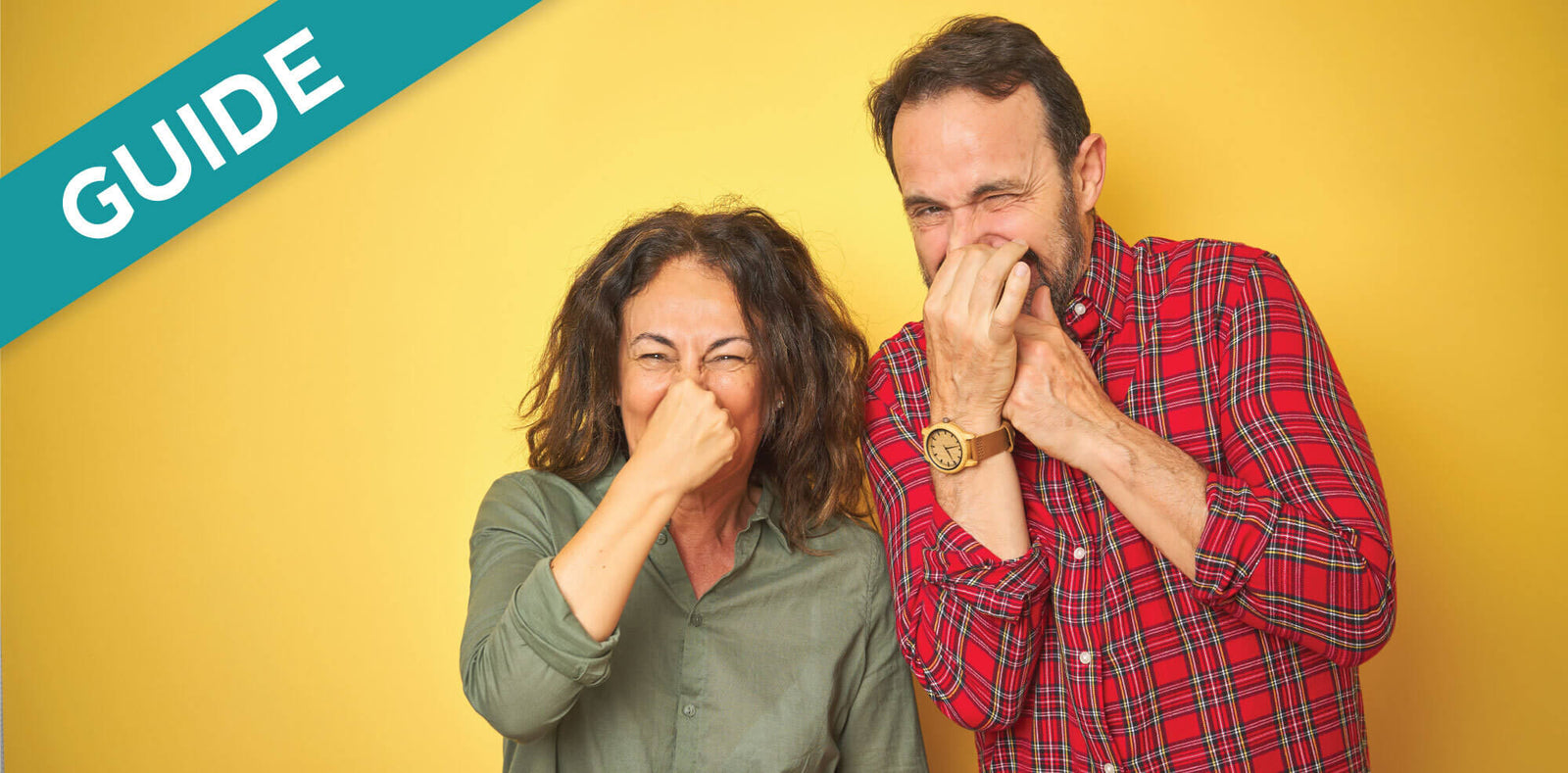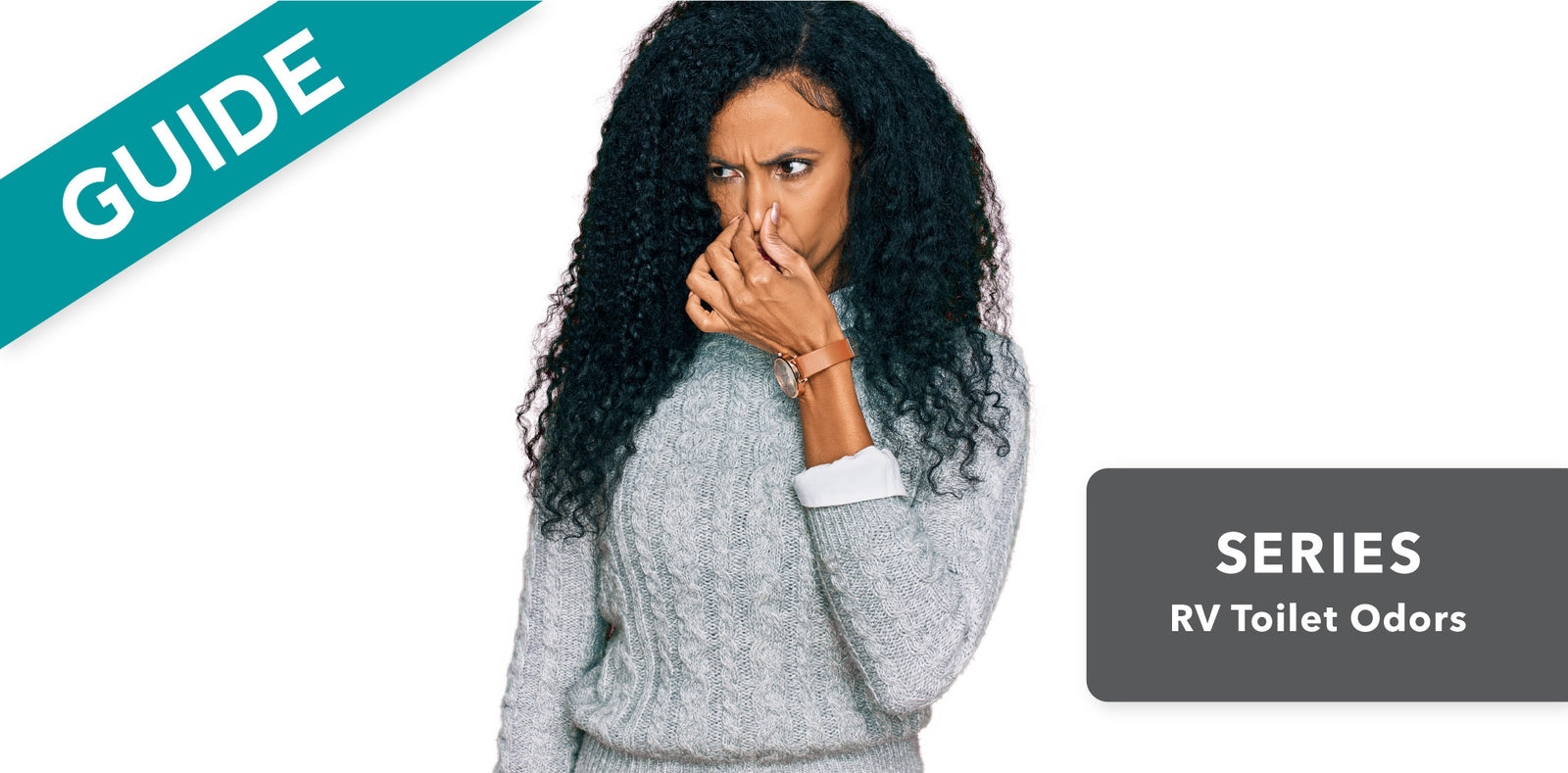
Key Points:
- RV toilet odors come from wastewater holding tanks, not the toilet itself. Aerobic bacteria are the best odor-fighting organisms.
- Odors arise from low water levels, high temperatures, poor ventilation, or ineffective treatments.
- Choosing the right treatment products and care habits is key to eliminating odors.
Why Your Toilet Stinks
This may seem obvious, but we feel it's important to make it clear: your RV toilet smells because you use it. That isn't a bad thing, and we actually encourage you do. Having access to a full bathroom while you camp sure beats digging a hole, but it comes with some added responsibilities to make sure you achieve the desired level of camping bliss.
RV toilet smells generally come from the black tank, where waste (poop and pee) is stored. Unlike a home system, your waste sits in the holding tank until dumped, and if left untreated, allow odors to build. Anaerobic bacteria (from your gut) produce all the foul-smelling gases (hydrogen sulfide and methane) that come from your RV toilet, while aerobic bacteria (from a high quality RV holding tank treatment) produce carbon dioxide and water.
Aerobic bacteria from an RV holding tank treatment require oxygen-rich environments and but break down waste without odor. Anaerobic bacteria thrive without oxygen, producing the strong sewage smells you may be used to. Adding aerobic bacteria-based treatments (e.g., Unique RV Digest-It Ultra) helps control odors effectively.
In addition, using the wrong cleaning products can kill beneficial bacteria inside your chosen RV holding tank treatment, so you should try to avoid harsh chemicals and antibacterial soaps wherever possible.
How to Prevent RV Toilet Odors
Even if you're using the best RV toilet treatment, odor issues may persist due to a few other reasons: water usage, tank temperatures, tank treatments and products, and ventilation. Here’s how to tackle these common problems:
1. Not Enough Water in Holding Tanks

- Keep waste submerged – Water forms a barrier that prevents odors from escaping. Hold the flush pedal for at least 10 seconds to ensure there is enough water in your black tank.
- Keep water in the toilet bowl – This adds another layer of odor control.
- Support bacteria growth – Aerobic bacteria need ample water to survive and break down waste efficiently.
- Prevent evaporation in high heat – Use more water when camping in temperatures above 85°F. Heat speeds up evaporation, exposing waste and intensifying odors.
Ensuring your black tank and toilet bowl have enough water prevents odors, supports beneficial bacteria, and minimizes issues caused by high temperatures.
2. Hot or Cold Holding Tanks

- Heat increases smells by evaporating water and slowing bacteria activity. Dump tanks more often in hot weather.
- Cold temperatures slow bacteria and may cause waste to freeze. Use tank heaters or insulation to prevent your tanks from freezing.
Extreme temperatures can disrupt bacteria activity and worsen odors. Using more water in heat and insulating tanks in the cold can help maintain optimal performance.
3. Using the Wrong Treatment Products

- Bacteria and enzyme treatments (like Unique RV Digest-It Ultra) are best. They eliminate odors while breaking down waste.
- Chemical treatments kill bacteria, halt waste breakdown, and may cause clogs and sensor issues. Many contain harsh ingredients like bleach or zinc, which can damage tanks.
- Avoid fragrance-based treatments – They only mask odors without addressing the root cause.
- Use compatible cleaning products – Antibacterial soaps and harsh cleaners neutralize bacteria treatments. Choose RV-safe products like Unique Scrub-It for toilets and Dawn Ultra for dishes.
Choosing bacteria-based treatments over chemicals ensures effective waste breakdown, prevents odors, and avoids damage to your RV’s system.
4. Improper Ventilation

- Check vent positioning – Poor placement can cause odors to blow back inside. Cyclone sewer vents help pull odors away.
- Clear vent blockages – Leaves, debris, or even insects can clog vents, trapping odors inside. Regularly inspect and clean your vents.
- Fix leaks and broken seals – Any gaps in the ventilation system can allow odors into your RV. Inspect seals and repair as needed.
- Keep the black tank valve closed – Leaving it open allows sewer gases to back up into your RV. Only open when dumping.
- Gray tank odors can also back up – Create a P-trap in your discharge hose to prevent smells from coming through the gray tank.
Proper airflow is crucial for keeping odors out of the RV. Regularly check vent positioning, clear blockages, and repair seals to maintain a fresh-smelling RV.
Other Common Problems

- Residual waste buildup – Leftover waste accumulates and can cause clogs and odors if you don’t rinse your tanks thoroughly every time you dump. A full rinse cycle is essential or you may need to perform a deep clean on your holding tanks.
- Stationary RVs accumulate buildup – Tanks may not drain properly if the RV is not level. Regular deep cleaning helps prevent this.
There can be residual waste in your holding tanks in hard to reach places, make sure you thoroughly rinse your holding tanks regularly to prevent build-up.
Best RV Tank Care Practices
Proper tank maintenance relies on 50% using the right products and 50% good habits. Here’s what to do:
- Use plenty of water when flushing.
- Treat tanks with bacteria and enzyme-based products.
- Keep tanks cool in hot weather.
- Ensure proper ventilation and inspect vents regularly.
- Flush and rinse your holding tanks completely every time you dump.
- Follow The Unique Method consistently for optimal results.
By implementing these best practices, you can keep your RV odor-free and enjoy a more comfortable camping experience. For more insights, check out our other article on how high temperatures worsen RV toilet smells and how to manage them effectively.

Prevent Common Problems In Your Tanks!
From misreading sensors, preventing clogs, or eliminating odors, we've got you covered no matter how you camp! All our best holding tank tips and trick information plus more can be found conveniently in one place when you download our FREE Unique Method Field Guide PDF. Achieve holding tank bliss today!
Get The Free Download Get The Free Download



